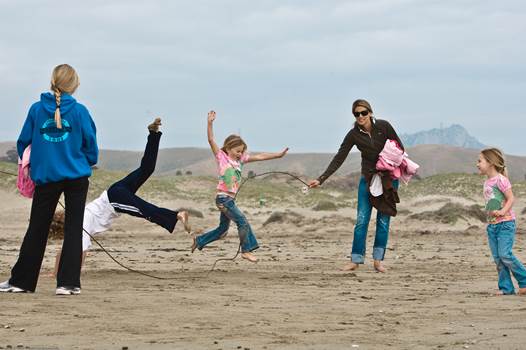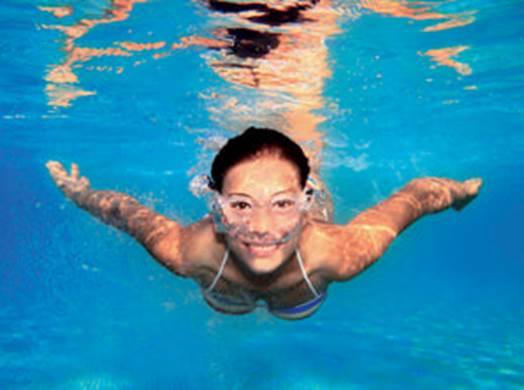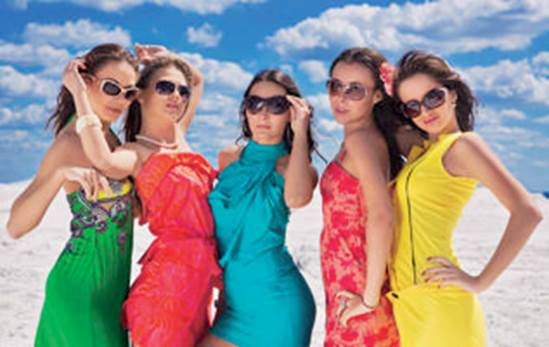Tips, tricks ‘n’ treats for staying
cool and avoiding seasonal woes
Most people think of winter as the “sick
season,” but summer’s seasonal woes can, at best leave you limp with fatigue
and at worst, in the hospital battling sunstroke. But with some simple
precautions, you can stay safe this summer.

How
To Stay Cool In Summers
Exercise
Your metabolism always generates heat, and
when you exercise, your muscles crank out 20 times more. That’s okay if body
heat can pass out into cool air. As the temperature rises, though, cooling
becomes difficult, then impossible. The evaporation of sweat can also take away
lots of body heat, but as the humidity rises, this too becomes difficult, then
impossible. Heat that can’t be shed externally remains trapped in the body.
That’s when problems develop. Some are mild (muscle cramps), others serious
(heat exhaustion), and some can be lethal (heat stroke).
A few simple precautions can keep you from
overheating during the dog days of summer.
·
Avoid sunlight. Schedule your outdoor activity
in the early morning or the evening and take advantage of the cooler
temperatures.
·
Take it easy. Make swimming or walking instead
of jogging your choice of physical activity. Take breaks and quit early.
·
Don’t work out in extreme heat and humidity. If
it’s humid and above 35o to 40o C take a day off from exercise or head for the
pool or an air-conditioned health club.
·
Drink plenty of water. Drink 150ml to 200 ml of
cool water before you get started, and pause frequently to drink. Even if you
don’t feel thirsty, drink again on your way to the shower. Conditioner or fans
the presence.
·
Listen to your body. Fatigue, weakness,
confusion, lightheadedness, nausea, labored breathing, chest discomfort, or a
rapid or erratic pulse can all be signs of trouble. If you feel ill, get into a
cool place and drink plenty of water. If you don’t improve promptly, get help.

Make
swimming or walking instead of jogging your choice of physical activity. Take
breaks and quit early
Diet
“summer is an excellent time to lose oodles
of weight”, says Nutritional Therapist R., Mumbai, “because you lose your
appetite for fried spicy foods and are more drawn to nature’s healthy bounty.”
However, to prevent viral infections like
stomach flu and indigestion, avoid fruits salads and juices from the roadside
or even in good restaurants, where food passes through many hands. Vegetables
tend to spoil easily, and partially cooked vegetables, as served in take – out
Chinese food, are the biggest germ carriers. In fact, eschew anything that is
raw (fruit or vegetables) from outside.
Stay cool at home
·
The presence of greenery outside the windows is
a natural and beautiful way to keep your home cool. A well-placed row of
climbing vines or plants with lush, green leaves will deliver effective shade,
act as a windbreak, and reduce your energy bills too.
·
Drink lots of water but check out the source as
it is easily contaminated. Filtered, boiled water is best.
·
Maintain good food hygiene. Don’t consume food
which has been kept out of the fridge for longer than 2 hours.
·
As tempted as you are to drink sharbats and
syrups, remember these are loaded with sugar: ‘If you’ve gone without eating
for a long time and you have something sweet, your blood will get a sugar spike
that puts you in a pre-diabetic state, even if you don’t have the condition,”
warns C.. That dizzy feeling you get is a telling sign.
·
Nimbu paani, Electral, or iced green tea with a
sugar substitute is better options.
·
Narial pani is best. It contains electrolytes in
a ratio similar to that in your blood which calms the body temperature.
·
Curd contains probiotics which increases good
bacteria in your stomach. Add tulsi, kadhipatta, mustard seeds to your chaas;
these herbs /spices have medicinal properties that calm the nervous system.
·
Cold drinks, ice creams and ice cold beers can
intervene with digestion and sweating. Of course these coolers can give you
temporary relief from the heat but they affect your body’s natural cooling
system. Alcohol is also high in calories. Draft beer (90 cals) or wine
(75cals/glass) is better
·
Mango is rich in fiber and minerals but also
high in sugar. Each fruit totes up to 90-110 cal.
·
Increase your intake of water soluble vitamins
(B, C) and zinc, which protect you from flus, infections and allergies, because
they get depleted faster through sweat. Get vitamin C from amla, citrus fruit,
B from high fiber wheat flakes, whole wheat chapati. Zinc is found in fish and
sea food. Or else take a Vitamin C and zinc supplement only in summer as a
safeguard.
·
A B-complex rich breakfast will keep you
energetic all day long. Say curd rice with chopped up cucumber and coriander, a
whole wheat toast with egg or wheat flakes with curd. To keep lunch and dinner light,
focus on fruits and vegetables rather than cereals, if you are a vegetarian.
Good options: leafy vegetables, dudhi, karela, parwal, carrot, cucumber
together with a glass of ginger– lemon juice, a plate of cut up fruit (papaya,
musk melon). Non vegetarians can have chicken and vegetables or fish and
vegetables. Fish is better than chicken. Limit red meat.
Keep total calories down to 1800 (women),
2200- 2500 (men)
Eyes

Sunglasses
will prevent both problems if they have high-quality lenses that screen out UV
rays
The ultraviolet rays in sunlight can damage
your eyes every bit as much as your skin. The cornea is at particular risk.
Even a single intense exposure can cause Photokeratitis, or sun blindness. The
symptoms are pain and light sensitivity, often accompanied by redness, tearing,
and uncontrollable blinking. Fortunately, the cornea will usually repair itself
in 12 to 48 hours. But repeated low-level ultraviolet exposure can cause
cumulative damage to the lens, ultimately resulting in cataracts. Sunglasses
will prevent both problems if they have high-quality lenses that screen out UV
rays. Avoid lenses that are rated as “cosmetic”. Instead, look for sunglasses
rated “general purpose” that absorbs at least 95% of ultraviolet B rays and 60%
of ultraviolet A. For intense exposures, turn to glasses with a “special
purpose” rating; they absorb 99% of UVB.